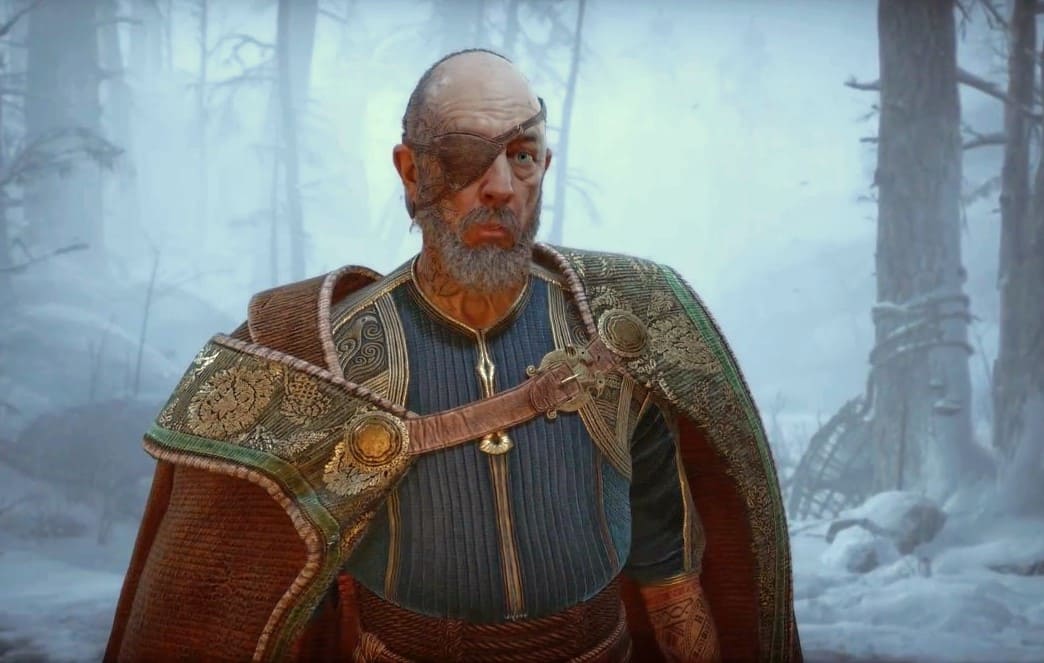VIKING GODS OF WAR: RANKING THE NORSE PANTHEON IN ALL THEIR BATTLE-SCARRED GLORY
From the frost-ridden realms of Scandinavia emerged tales of gods as stormy and tumultuous as the seas themselves. Each deity, unique, dramatic, and shrouded in violent splendor, bears tales of valor, treachery, and might. Let's delve into the ranks of these Viking gods of war.
1. ODIN: THE ALLFATHER

The Allfather, Odin, sits at the peak of the Norse pantheon. Sacrificing his eye in the well of Mimir for wisdom and hanging himself from Yggdrasil, the world tree, to gain the knowledge of runes, his quest for understanding is relentless. As the god of war and death, his very whims sway battles, and he welcomes the valorous fallen into Valhalla, his grand hall. In war, his shamanistic powers and unmatched strategy often tip the scales, earning him the respect and fear of both gods and men.
2. THOR: THE THUNDERER

Thor, the robust, red-bearded thunder god, wields his hammer, Mjolnir, with unequaled might. In the thunderous clashes and electrifying battles, Thor defends Asgard and Midgard from giants and monsters. His strength and courage make him an integral part of Viking warfare, a god whom every Viking warrior aspires to emulate.
3. TYR: THE BRAVE ONE-HANDED GOD

Tyr's valor is as legendary as the tales that follow his one-handed figure. A god of law and heroic glory, his willingness to sacrifice his hand to bind the monstrous wolf, Fenrir, highlights his selflessness. His courage inspires warriors, making him a pivotal god in the realms of war and justice.
4. FREYA: THE VALKYRIE QUEEN

Freya's grace belies her deadly prowess. As the goddess of love, beauty, and fertility, her allure is as potent as her wrath. Leader of the Valkyries, the choosers of the slain, she ushers the worthy fallen into her heavenly meadow, Folkvangr. Her influence on warfare, despite being indirect, is compelling and deeply significant.
5. LOKI: THE TRICKSTER

Loki, the silver-tongued trickster, is a catalyst for chaos. His actions, though not directly warlike, often incite violence and conflict among gods and mortals. From his hand spring terrible beasts like Fenrir and Jörmungandr, whose roles in the dreaded Ragnarok are crucial. Thus, Loki's influence on war is more strategic and manipulative, making him a nontraditional yet significant deity of war.
6. HEIMDALL: THE VIGILANT GUARDIAN

Heimdall, endowed with keen sight and hearing, stands guard at Asgard's gates, his gaze piercing through the fog of uncertainty. His role in war is more defensive, yet no less vital. His inevitable clash with Loki at Ragnarok seals his reputation as a god of warfare.
7. BALDUR: THE INVINCIBLE

Baldur, the beloved, the invincible, embodies the beauty and tragedy of war. His death, woven by Loki's deceit, ignites a series of events leading to Ragnarok, highlighting his symbolic role in the saga of war and destruction.
8. VIDAR: THE SILENT AVENGER

Vidar, the silent one, personifies strength and revenge. His role at Ragnarok, where he avenges his father Odin by slaying Fenrir, cements him as an epitome of vengeance, an aspect often associated with warfare.
9. SKADI: THE WINTER HUNTRESS

Skadi, a Jotunn who became a goddess, embodies the harsh, icy wilderness. In battles, her skills as a huntress and her proficiency with a bow make her a formidable adversary. Skadi represents the resilience and tenacity of warriors, further emphasizing the inextricable bond between her and the war-ridden history of Vikings.
10. SIF: THE GOLDEN-HAIRED GODDESS

Sif's golden hair is as radiant as her battle spirit. As Thor's wife, she carries herself with a dignity that sets her apart. Though she may not be a warrior, her mental fortitude and her fierce loyalty to Thor make her stand out. Her resilience adds a touch of grace to the violent reality of war.




Leave a comment